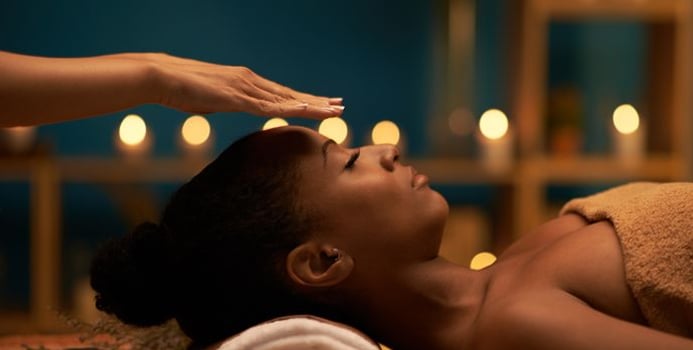Reiki is the combination of two Japanese words: "rei" which means God's wisdom or the higher power and "ki" which is life force energy. It was developed by Dr. Mikao Usui who was born to a wealthy Buddhist family in 1865. His family was able to give him a well-rounded education and through his studies, he developed an interest in healing himself through the laying of hands that wasn't attached to any specific religion or religious belief. He wanted to be available to everyone.
What is it?
Reiki at its root is a method of stress reduction, relaxation and a method to promote healing by improving your life force energy. While you may see a practitioner for a specific purpose, it actually is meant to treat the whole person. Some people just feel very relaxed, while others may feel a glowing radiance that surrounds them. It is different for everyone.
Reiki Practitioners
Reiki is not taught like most forms of healing. It is not a course with study materials and tests, but rather it's called attunement where a Reiki master transfers the knowledge to the student through the opening of the crown, heart and palm chakras. This process creates a special link between master and student, and once attuned you can never lose Reiki. However, practitioners can reach more levels through more attunements.
What to Expect
This is not traditional healing that most think of in the West. During a Reiki session, you will remain clothed at all times. Before the session, you will discuss with the practitioner why you are there. You may be laying down or seated in a comfortable chair in a quiet environment. The practitioner may lay hands lightly on your body, or just over your body with no touching. Touching should never feel inappropriate. You should feel relaxed and comfortable at all times.
This is not a method of diagnosing, but your practitioner may recommend some ways to care for yourself, such as drinking more water, after a session. Often, four sessions are recommended to see improvement or benefit.
[Image via iStock/Getty]



